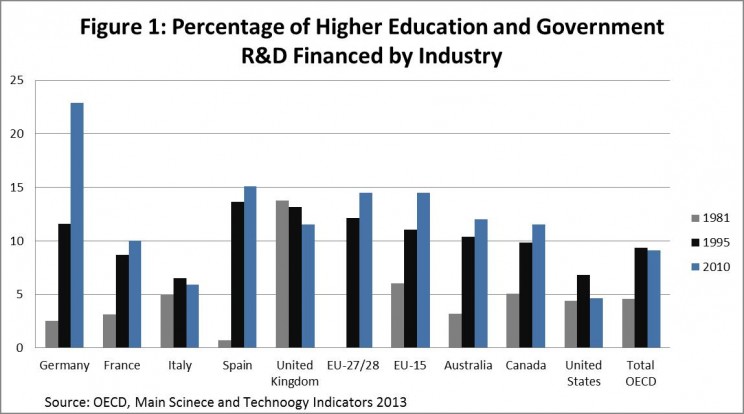In 2015 the Oxford Dictionary of National Biography introduced an annual research bursary scheme for scholars in the humanities. As the first year of the scheme comes to a close, we ask the first of the 2015-16 recipients—the economic historian, Dr Helen Paul of Southampton University—about her research project, and how it’s developed through her association with the Oxford DNB.
The post Financial networks and the South Sea Bubble appeared first on OUPblog.
Just because everyone is on Twitter doesn’t mean they’ve all got interesting things to say. I vaguely recall reading that late 19th-century curmudgeons expressed similar scepticism about the then much-hyped technology of the telephone.
The post Just because all philosophers are on Twitter… appeared first on OUPblog.
By now, the early Brexit panic based on assumptions of catastrophe, disaster, and apocalypse, is giving way to more positive attitudes in the science fields. Yes, there are changes coming, sometimes painful, but there are also opportunities for new partnerships, fresh collaborations, and bolder directions. I was on a month-long visit to the United Kingdom when the Brexit vote took place
The post Beyond Brexit panic: an American perspective appeared first on OUPblog.
Long-run trends suggest a broad shift is taking place in the institutional financing structure that supports academic research. According to data compiled by the OECD reported in Figure 1, industry sources are financing a growing share of academic research while “core” public funding is generally shrinking. This ongoing shift from public to private sponsorship is a cause for concern because these sponsorship relationships are fundamentally different. Available evidence suggests that industry financing does not simply replace dwindling public money, but imposes additional restrictions on academic researchers. In particular, industry sponsors frequently limit disclosure of research findings, methods, or materials by delaying or banning public release.
Recent economic research highlights why public disclosure of academic research is important. Disclosure permits the stock of public knowledge to be cumulative, accessible, and reliable. It limits duplication of research efforts, allows new knowledge to be replicated and verified by professional peers, and permits access and use by other researchers which enhances opportunities for complementary research. Some work finds that greater access to ideas and materials in academic research not only increased incentives for direct follow-on research, but led to an increase in the diversity of research by increasing the number of experimental research lines. Other work, examining the theoretical conditions supporting “open science” versus “secrecy”, stressed that maintaining and growing the stock of public knowledge requires a limit on the private financial returns obtained through secrecy.

To better understand the potential implications of increased industry funding, we implemented a research project that examined the relationship between industry sponsorship and restrictions on publication disclosure using individual-level data on German academic researchers. Germany is an apt setting for examining this relationship. It has a strong tradition of public financial support for academic research and, according to the OECD, Germany experienced the most dramatic growth in its share of industry sponsorship, an 11.3 percentage point increase from 1995 to 2010 (see Figure 1).
German academic researchers were surveyed about the degree of publication disclosure restrictions experienced during research projects sponsored by government, foundations, industry, and other sources. To examine if industry sponsorship jeopardizes disclosure of academic research, we modeled the degree of restrictiveness (i.e. delay and secrecy) as a function of the researcher’s budget share financed by industry. This formulation allows us to examine two potential effects of industry sponsored research contracts. The first is an adoption effect that takes place when academic researchers commit to industry funding. The second is an intensity effect that captures how publication restrictions depend on the researcher’s exposure to greater ex post review and evaluation by industry sponsors. Our models include covariates that control for non-industry extramural sponsorship, personal characteristics, research characteristics, institutional affiliations, and scientific fields of study.
Both the descriptive and regression results show a positive relationship between the degree of publication restrictions and industry sponsorship. The percentage of respondents who reported higher secrecy (partial or full) is significantly larger for industry sponsored researchers than it is for researchers with other extramural sponsors, 41% and 7% respectively. Controlling for selection, adopting industry sponsorship more than doubles the expected probabilities of publication delay and secrecy. The intensity effect is positive and significant with a larger effect on publication secrecy than on publication delay when academic researchers become heavily supported by industrial firms. These results are robust to the possibility that researchers self-select into extramural sponsorship and to the possibility that the share of industry sponsorship is endogenous due to unobserved variables.
Based on our analysis, the shift from public to private sponsorship seen in the OECD aggregate data reflects changes in the microeconomic environment shaping incentives for disclosure by academic researchers. On average, academic researchers are willing to restrict disclosure in exchange for financial support by industry sponsors. Our results shed light on an important challenge facing policymakers. Understanding the trade-off between public and private sponsorship of academic research involves gauging the impact of disclosure restrictions on the quantity, quality, and evolution of academic research to better understand how these restrictions may ultimately influence innovation and economic growth.
Image credit: Computer research, © Jürgen François, via iStock Photo.
The post Does industry sponsorship restrict the disclosure of academic research? appeared first on OUPblog.


Kings in Disguise: A Novel
Author: James Vance
Illustrator: Dan Burr
Introduction: Alan Moore
Publisher: W.W. Norton
ISBN-10: 0393328481
ISBN-13: 978-0393328486
Kings in Disguise takes place in1932, the height of the Depression. It’s the story of the Bloch family, young Frankie in particular. Mr. Bloch has plunged into alcoholic despair and can’t find work anywhere. He’s lost just about all hope. Albert, the older brother has lost all respect for his father while Frankie just gets lost at the movies. Gangster movies are his favorites and he carefully saves bottles so that he can get his dime to see a new movie every week.
It all comes to a head when Albert and Mr. Bloch get into a terrible fight and in the morning, Mr. Bloch has disappeared supposedly looking for work in a new town. Albert and 12-year old Frankie are left on their own. Albert tries to rob someone in order to buy food and is injured, will possibly arrested and thrown in jail. Frankie is left on his own and tries to make it to Detroit to find his father and uncle. Frankie runs into a group of hobos with bad intentions but is saved by another hobo calling himself the King of Spain.
The King of Spain is more than a little crazy and sick to boot but he’s a kindly soul and protects Frankie. The two set off riding the rails for Detroit and they encounter just about every kind of lost soul there is. They also find small kindnesses and worthy people which help keep the hope alive. It’s an incredible story told with humor, pathos and gut wrenching reality.
The black and white illustrations by Burr add not only depth to the story but manage to convey such deep emotion.
This story of a child forced into being a man is touching and painfully beautiful. The Great Depression depicted by this amazing graphic novel is depicted in a very realistic and human way.




